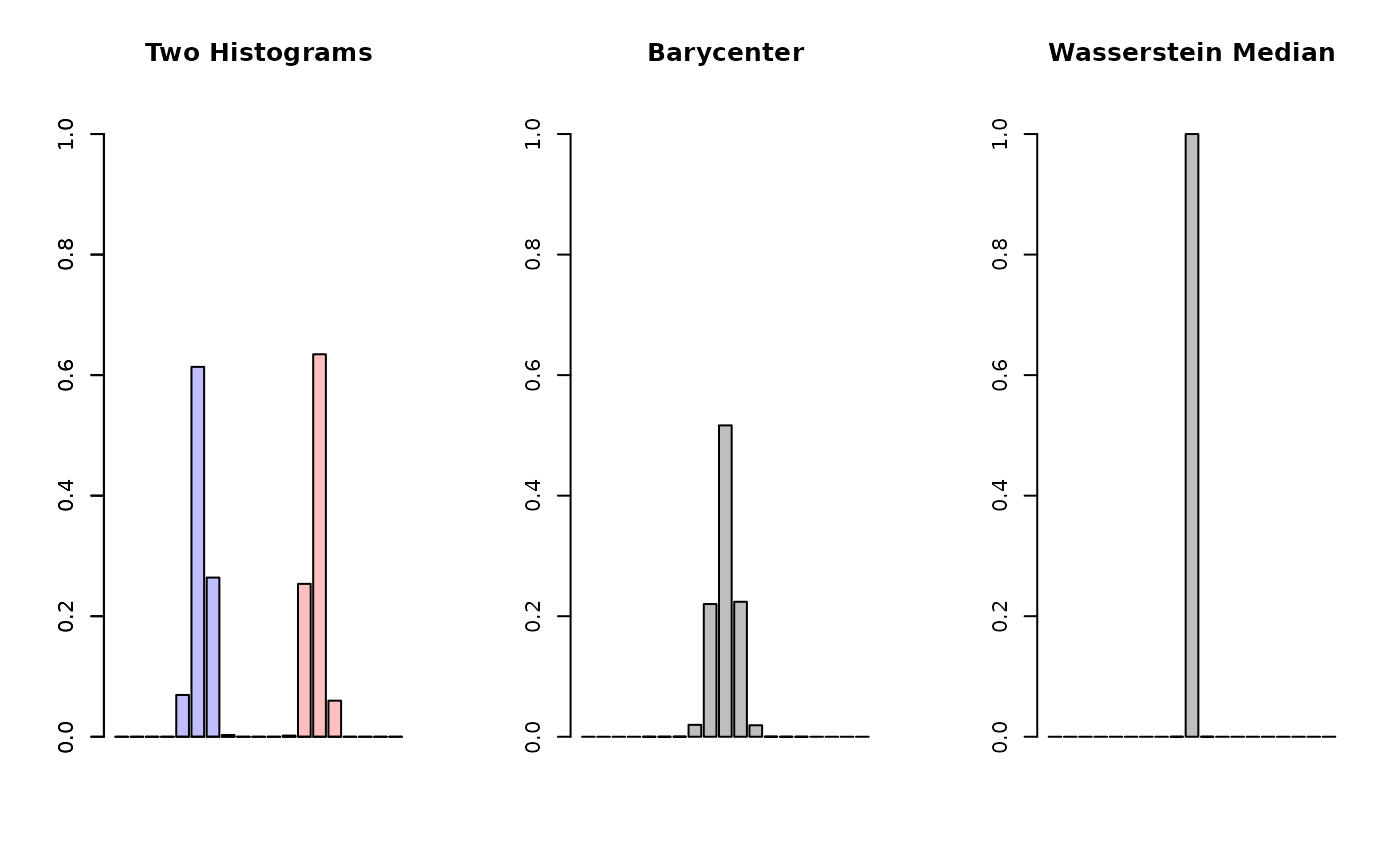
Wasserstein Median of Histograms by You et al. (2022)
histmed22Y.RdGiven multiple histograms represented as "histogram" S3 objects, compute the
Wasserstein median of order 2. We need one requirement that all histograms in an
input list hists must have same breaks. See the example on how to
construct a histogram on predefined breaks/bins.
Arguments
- hists
a length-\(N\) list of histograms (
"histogram"object) of same breaks.- weights
a weight of each image; if
NULL(default), uniform weight is set. Otherwise, it should be a length-\(N\) vector of nonnegative weights.- lambda
a regularization parameter; if
NULL(default), a paper's suggestion would be taken, or it should be a nonnegative real number.- ...
extra parameters including
- abstol
stopping criterion for iterations (default: 1e-8).
- init.vec
an initial weight vector (default: uniform weight).
- maxiter
maximum number of iterations (default: 496).
- nthread
number of threads for OpenMP run (default: 1).
- print.progress
a logical to show current iteration (default:
FALSE).
Examples
# \donttest{
#----------------------------------------------------------------------
# Binned from Two Gaussians
#
# EXAMPLE : small example for CRAN for visualization purpose.
#----------------------------------------------------------------------
# GENERATE FROM TWO GAUSSIANS WITH DIFFERENT MEANS
set.seed(100)
x = stats::rnorm(1000, mean=-4, sd=0.5)
y = stats::rnorm(1000, mean=+4, sd=0.5)
bk = seq(from=-10, to=10, length.out=20)
# HISTOGRAMS WITH COMMON BREAKS
histxy = list()
histxy[[1]] = hist(x, breaks=bk, plot=FALSE)
histxy[[2]] = hist(y, breaks=bk, plot=FALSE)
# COMPUTE
hmean = histbary15B(histxy)
hmeds = histmed22Y(histxy)
# VISUALIZE
opar <- par(no.readonly=TRUE)
par(mfrow=c(1,3))
barplot(histxy[[1]]$density, col=rgb(0,0,1,1/4),
ylim=c(0, 1.05), main="Two Histograms")
barplot(histxy[[2]]$density, col=rgb(1,0,0,1/4),
ylim=c(0, 1.05), add=TRUE)
barplot(hmean$density, main="Barycenter",
ylim=c(0, 1.05))
barplot(hmeds$density, main="Wasserstein Median",
ylim=c(0, 1.05))
 par(opar)
# }
par(opar)
# }